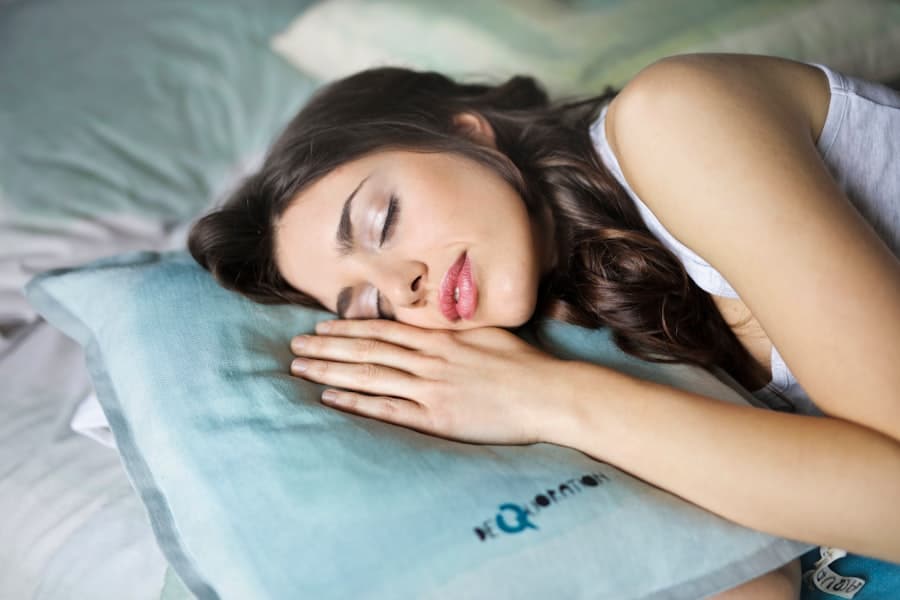In recent years, the intersection of technology and health has given rise to a new category of devices known as wearables. These gadgets, which include smartwatches, fitness trackers, and specialized sleep monitors, have transformed the way individuals approach their health and wellness. Among their many applications, one of the most significant is in the realm of sleep.
As sleep is a critical component of overall health, the ability to monitor and analyze sleep patterns has become increasingly important. Personalized sleep therapies, which tailor interventions based on individual needs and data, are emerging as a promising solution to combat sleep disorders and improve sleep quality. The growing awareness of the importance of sleep has led to an increased demand for effective solutions.
Sleep disorders such as insomnia, sleep apnea, and restless leg syndrome affect millions of people worldwide, leading to a decline in overall health and well-being. Wearable technology offers a unique opportunity to address these issues by providing users with insights into their sleep habits. By leveraging data collected from wearables, healthcare professionals can develop personalized sleep therapies that cater to the specific needs of each individual, ultimately enhancing their quality of life.
Key Takeaways
- Wearables have revolutionized personalized sleep therapies by providing real-time feedback and recommendations.
- The impact of wearables on sleep monitoring and analysis has allowed for more accurate tracking of sleep patterns and quality.
- Utilizing wearables to track sleep patterns and quality has enabled individuals to better understand their sleep habits and make necessary adjustments.
- Integrating wearables with personalized sleep therapies has the potential to greatly improve the effectiveness of treatment.
- Future developments and innovations in wearable sleep technology hold promise for further enhancing personalized sleep therapies.
The Impact of Wearables on Sleep Monitoring and Analysis
Wearable devices have revolutionized the way we monitor and analyze sleep. Traditional methods of sleep assessment often relied on subjective self-reports or cumbersome polysomnography conducted in sleep labs. In contrast, wearables provide a more accessible and user-friendly approach to sleep monitoring.
Equipped with sensors that track various physiological parameters such as heart rate, movement, and even blood oxygen levels, these devices can offer a comprehensive view of an individual’s sleep patterns. For instance, devices like the Oura Ring and Fitbit have gained popularity for their ability to provide detailed insights into sleep stages, including light, deep, and REM sleep. By analyzing this data, users can gain a better understanding of their sleep architecture and identify factors that may be contributing to poor sleep quality.
Furthermore, the continuous nature of data collection allows for long-term trends to be observed, enabling users to make informed decisions about their sleep habits and lifestyle choices.
Utilizing Wearables to Track Sleep Patterns and Quality

The ability to track sleep patterns and quality through wearables has opened up new avenues for individuals seeking to improve their rest. Many wearables come equipped with algorithms that analyze data collected during the night, providing users with a breakdown of their sleep duration, efficiency, and disturbances. This information is invaluable for those who struggle with sleep issues, as it allows them to pinpoint specific areas for improvement.
Armed with this knowledge, they can experiment with various interventions such as adjusting their bedtime routine, creating a more conducive sleep environment, or even consulting with a healthcare professional for further guidance. The granularity of data provided by wearables empowers users to take control of their sleep health in ways that were previously unattainable.
The Role of Wearables in Providing Real-Time Feedback and Recommendations
One of the most compelling features of wearable technology is its ability to provide real-time feedback and recommendations based on collected data. Many devices are designed not only to track sleep but also to offer actionable insights that can help users optimize their rest. For instance, some wearables utilize machine learning algorithms to analyze an individual’s sleep patterns over time and generate personalized recommendations for improving sleep quality.
These recommendations may include suggestions for optimal bedtime based on historical data or alerts when it is time to wind down for the night. Additionally, some wearables can integrate with smart home devices to create an ideal sleeping environment by adjusting lighting or temperature based on the user’s preferences. This level of personalization enhances the user experience and encourages adherence to healthy sleep practices.
Integrating Wearables with Personalized Sleep Therapies
The integration of wearables with personalized sleep therapies represents a significant advancement in the field of sleep medicine. By combining real-time data from wearables with therapeutic interventions tailored to individual needs, healthcare providers can create comprehensive treatment plans that address the root causes of sleep disturbances. For example, cognitive behavioral therapy for insomnia (CBT-I) can be enhanced by incorporating data from wearables that track progress over time.
Moreover, some companies are developing platforms that allow users to connect their wearable devices with telehealth services. This integration enables healthcare professionals to monitor patients remotely and adjust treatment plans based on real-time data. Such collaborative approaches not only improve patient outcomes but also foster a sense of accountability among users as they engage actively in their own health management.
Challenges and Limitations of Wearables in Sleep Therapy

Despite the numerous benefits associated with wearable technology in sleep therapy, several challenges and limitations must be acknowledged. One significant concern is the accuracy of the data collected by these devices. While many wearables are equipped with advanced sensors, they may not always provide precise measurements compared to clinical assessments conducted in controlled environments.
Variability in individual physiology can also lead to discrepancies in data interpretation. Additionally, there is the issue of user compliance and engagement. While wearables can provide valuable insights, their effectiveness largely depends on consistent use.
Some individuals may struggle with wearing devices throughout the night or may become overwhelmed by the volume of data presented. This can lead to disengagement from the process and ultimately hinder progress toward improved sleep quality.
Future Developments and Innovations in Wearable Sleep Technology
The future of wearable technology in the realm of sleep therapy is promising, with ongoing research and development aimed at enhancing functionality and accuracy. Innovations such as advanced biometric sensors capable of measuring additional physiological parameters—like skin temperature or electrodermal activity—are on the horizon. These advancements could lead to even more comprehensive insights into an individual’s sleep health.
Furthermore, artificial intelligence (AI) is expected to play a pivotal role in shaping the future of wearable sleep technology. By harnessing vast amounts of data from diverse populations, AI algorithms could identify patterns and correlations that may not be immediately apparent to human analysts. This could lead to more effective personalized interventions and predictive analytics that anticipate potential sleep issues before they arise.
The Potential of Wearables in Revolutionizing Personalized Sleep Therapies
The integration of wearable technology into personalized sleep therapies holds immense potential for transforming how individuals approach their sleep health.
As technology continues to evolve, it is likely that we will see even more sophisticated solutions emerge that further enhance our understanding of sleep and its impact on overall well-being.
As we look ahead, it is essential for researchers, healthcare providers, and technology developers to collaborate in addressing the challenges associated with wearable technology in sleep therapy. By focusing on improving accuracy, user engagement, and integration with clinical practices, we can unlock the full potential of wearables in revolutionizing personalized approaches to sleep health. The future promises exciting developments that could lead to better outcomes for those struggling with sleep disorders and ultimately contribute to a healthier society overall.
In a related article discussing the best Lenovo laptops, the importance of technology in improving personal health and wellness is highlighted. Wearables, such as smartwatches and fitness trackers, play a crucial role in enabling personalized sleep therapies by tracking sleep patterns and providing valuable insights for better rest. To learn more about the latest Lenovo laptops and how they can enhance your overall well-being, check out this article.
FAQs
What are wearables?
Wearables are electronic devices that can be worn as accessories or implanted into the body to track and monitor various health and fitness-related data.
How do wearables enable personalized sleep therapies?
Wearables can track an individual’s sleep patterns, including duration, quality, and disturbances. This data can be used to personalize sleep therapies by providing insights into the individual’s specific sleep needs and issues.
What types of wearables are used for personalized sleep therapies?
Wearables used for personalized sleep therapies include smartwatches, fitness trackers, and specialized sleep tracking devices that monitor sleep patterns, heart rate, and movement during sleep.
What role do wearables play in improving sleep quality?
Wearables can provide valuable data on an individual’s sleep habits, which can be used to identify factors affecting sleep quality and to tailor personalized interventions, such as sleep hygiene recommendations or behavioral therapies.
Are wearables effective in enabling personalized sleep therapies?
Research has shown that wearables can be effective in enabling personalized sleep therapies by providing accurate and continuous data on an individual’s sleep patterns, which can inform personalized interventions and improve sleep quality.

